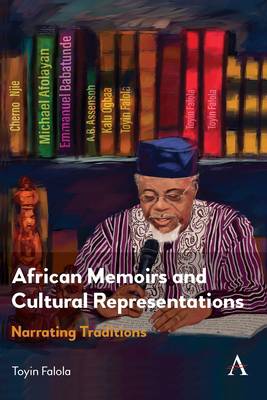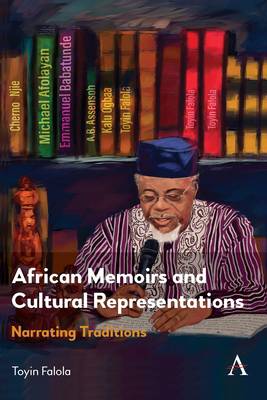
Door een staking bij bpost kan je online bestelling op dit moment iets langer onderweg zijn dan voorzien. Dringend iets nodig? Onze winkels ontvangen jou met open armen!
- Afhalen na 1 uur in een winkel met voorraad
- Gratis thuislevering in België vanaf € 30
- Ruim aanbod met 7 miljoen producten
Door een staking bij bpost kan je online bestelling op dit moment iets langer onderweg zijn dan voorzien. Dringend iets nodig? Onze winkels ontvangen jou met open armen!
- Afhalen na 1 uur in een winkel met voorraad
- Gratis thuislevering in België vanaf € 30
- Ruim aanbod met 7 miljoen producten
Zoeken
€ 39,95
+ 79 punten
Uitvoering
Omschrijving
Oral traditions and creative oratures have been celebrated in African studies over the years, specifically from the 1950s, as the most important and viable correspondence, aside from material artifacts, between social "archeologists" attempting to penetrate the African preliterate past and the social-political and economic productions of that same past. In the memoirs chosen for this book, oral traditions are braided with personal experiences in the formation of the self, providing the basis of some African literary outputs and championed as having the ability to engineer the African knowledge system in global academe. In this regard, this work stressesthe concept that most memoir writing scholars feel that the production and presentation of the autobiographical self aredependent on the categories of individualism and relationality. The memoirists depict their own identities in their tales as not simply a part of their society but also one strongly impacted by prominent persons in their many lived settings. The bookdiscusses an approach that enables West African memoirists to review their cultural backgrounds in the light of living in other spaces and acquiring different experiences.
Specificaties
Betrokkenen
- Auteur(s):
- Uitgeverij:
Inhoud
- Aantal bladzijden:
- 220
- Taal:
- Engels
- Reeks:
Eigenschappen
- Productcode (EAN):
- 9781839987748
- Verschijningsdatum:
- 13/05/2025
- Uitvoering:
- Paperback
- Formaat:
- Trade paperback (VS)
- Afmetingen:
- 152 mm x 229 mm
- Gewicht:
- 326 g

Alleen bij Standaard Boekhandel
+ 79 punten op je klantenkaart van Standaard Boekhandel
Beoordelingen
We publiceren alleen reviews die voldoen aan de voorwaarden voor reviews. Bekijk onze voorwaarden voor reviews.











